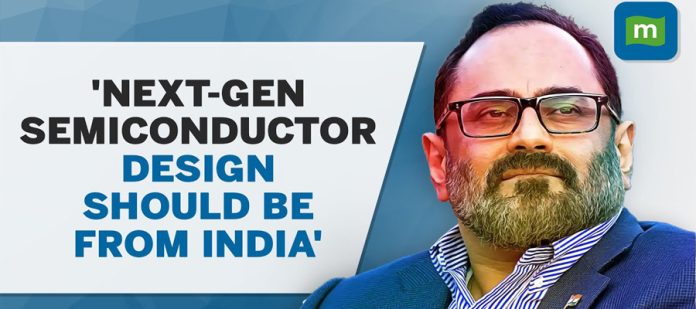India is poised to establish itself as a leading player in the semiconductor industry, with the head of the Semiconductor Equipment and Materials International (SEMI), Ajit Manocha, emphasizing the nation’s potential. In an interview with PTI, Manocha highlighted India’s favourable factors, such as a burgeoning talent pool, a supportive government, a massive market, and a proficient English-speaking population. He asserted that India has all the necessary ingredients to attract and foster a robust semiconductor ecosystem.
Manocha stressed the importance of seizing the current moment, stating that it is now or never for India to establish itself in the semiconductor industry. He emphasized that time is of the essence, as building the necessary infrastructure and expertise takes years. Failure to act now could result in a loss of credibility for India in the global semiconductor arena.
With the aim of propelling India’s semiconductor sector, the government has introduced a Rs 76,000-crore incentive scheme for chip-making. This substantial investment, coupled with India’s large talent pool and robust skilling programs, is expected to catalyze the growth of the semiconductor design startup ecosystem. The country is on track to have nearly 100 semiconductor design startups by 2024.
India’s democratic structure, being the world’s largest democracy, provides a favorable environment for innovation and investment. Additionally, India’s population, which has surpassed China’s at 1.4 billion, presents an immense domestic market. Moreover, the widespread use of English and adherence to international laws further enhance India’s appeal as a destination for semiconductor companies.
Manocha expressed optimism about India’s leadership, citing leaders such as Rajeev Chandrashekhar, Ashwini Vaishnav, and Prime Minister Narendra Modi, who are instrumental in driving the semiconductor agenda forward. He highlighted the alignment of various factors, including visionary leadership, to support India’s aspirations of becoming a semiconductor powerhouse.
SEMI, with its extensive network of over 2,500 member companies and 1.3 million professionals worldwide, is playing a pivotal role in facilitating collaboration between India and the global semiconductor industry. Manocha, who is a member of the India Semiconductor Mission (ISM), acknowledged the progress made by ISM in terms of evaluating applicants and expressed confidence that announcements regarding collaborations will be forthcoming.
To further bolster India’s semiconductor industry, the United States can play a crucial role. As a leader in semiconductor design and equipment, the U.S. has the expertise and resources to support India’s growth in these domains. Collaborating with the U.S. can also facilitate technology transfer, aiding India in rapidly advancing its semiconductor capabilities.
Manocha emphasized that India must go beyond the establishment of wafer fabs and focus on developing a comprehensive ecosystem to sustain the semiconductor industry’s growth. Collaboration with other countries is crucial, as India’s transformation into a trillion-dollar economy presents ample opportunities for international partners to contribute and benefit mutually.
The development of India’s semiconductor industry requires a continuous focus on talent development. Manocha highlighted the importance of leveraging the expertise and experience of countries like the U.S. to train and mentor India’s emerging talent, giving them a head start in this rapidly evolving field.
Looking ahead, Manocha underscored the significance of timely announcements before Prime Minister Modi’s visit to the United States. Such announcements would generate excitement and instill confidence among tier-one companies in the U.S., Europe, and Asia. The message conveyed during the visit should emphasize India’s commitment to supporting companies entering the Indian market while fostering their growth.
Ultimately, the Indian government plays a pivotal role in the success of semiconductor companies, regardless of the bid winners. It is crucial to provide continuous support and guidance to ensure their success and prevent potential struggles.
In conclusion, India has a unique opportunity to establish itself as a global semiconductor powerhouse. With its diverse strengths, including a talented workforce, a supportive government, and a vast market, India is well-positioned to attract semiconductor companies and foster a thriving ecosystem. By leveraging international partnerships and investing in talent development, India can propel its semiconductor industry to new heights, contributing to its overall economic growth and technological advancement.

